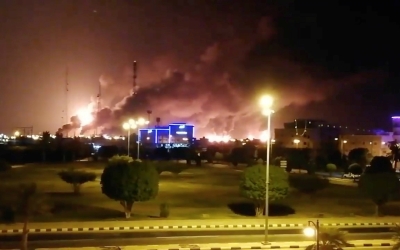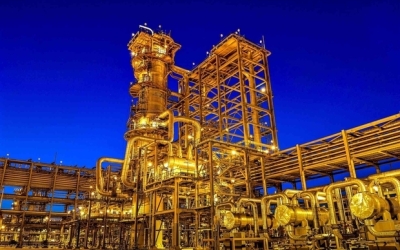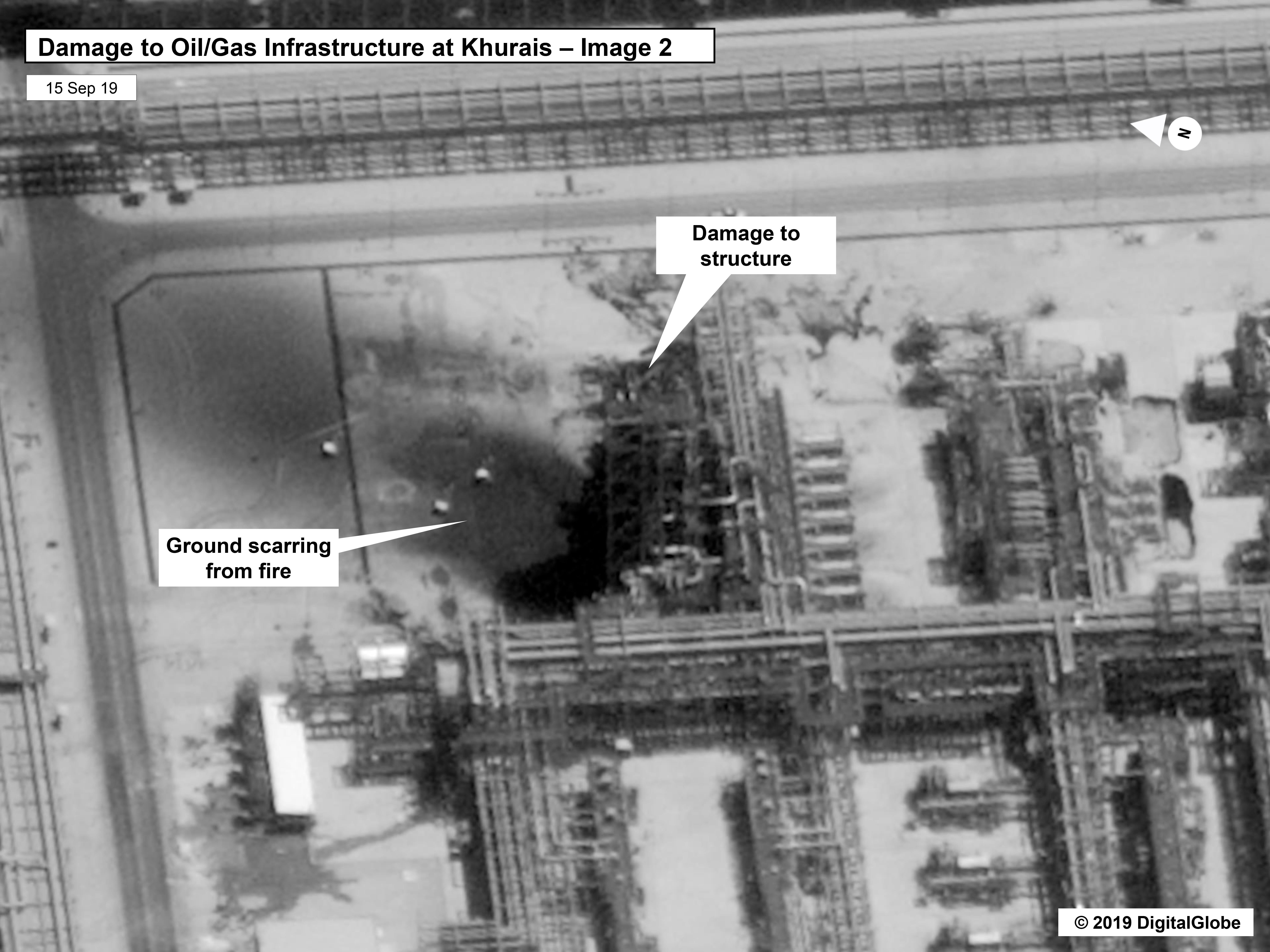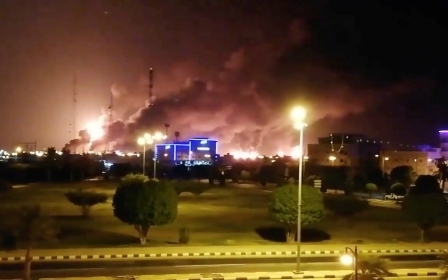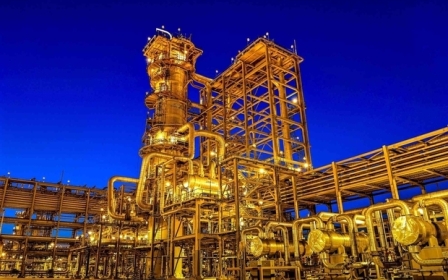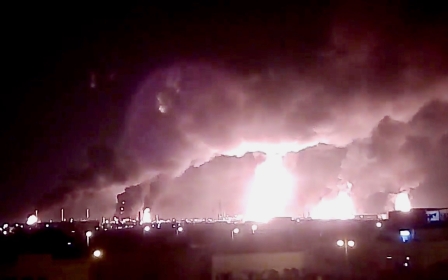Baghdad says US does not believe its territory was used to launch attack on Saudi Arabia
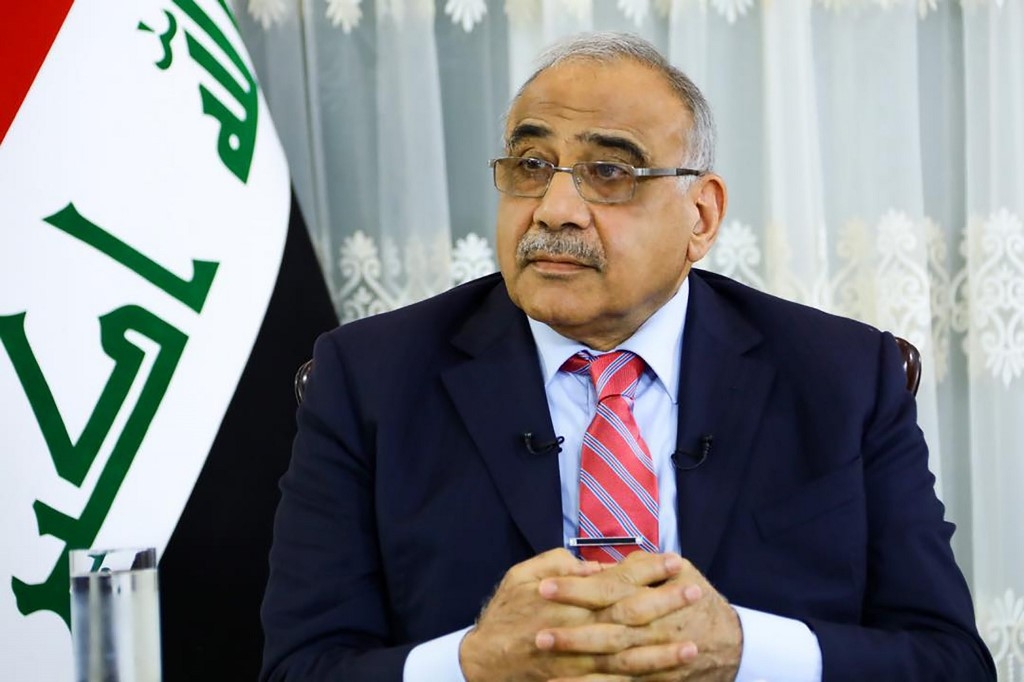
Washington did not suspect an attack on Saudi Arabia had been launched from Iraqi territory, Baghdad said on Monday.
US Secretary of State Mike Pompeo told Iraq's Prime Minister Adel Abdul Mahdi by phone that "the information they have confirms the Iraqi government's statement that its territory was not used to carry out this attack," the Iraqi government said.
Yemen's Houthi rebels claimed responsibility for the pre-dawn strike on Saturday on two Saudi Aramco oil plants, saying they had conducted the attack with ten drones.
However, Middle East Eye, citing an Iraqi intelligence official, reported on Sunday that the attacks were carried out by Iranian drones launched from Hashd al-Shaabi bases in southern Iraq.
A US official told Reuters that there were 19 points of impact on the targets and the attacks had come from the west and north-west - the direction of Iraq and Iran - rather than from Yemen, to the south.
The American source added that Saudi officials indicated they had seen signs that cruise missiles were used in the attack.
The Wall Street Journal also reported on Monday - citing unidentified sources - that US intelligence officials believe the attacks were launched from Iran.
Officials quoted by the New York Times spoke of drones and cruise missiles that might have been deployed, though not all hit their targets.
The Iraqi statement said Pompeo and Abdul Mahdi had agreed to share intelligence over the attack.
"The prime minister stressed that Iraq's duty was to safeguard its own security and stability, to avoid any escalation, and to prevent its territory being used against any neighbouring, brotherly, or friendly country," Abdul Mahdi's office said.
Trump says US 'locked and loaded'
Saudi Arabia is the world’s biggest oil exporter and the attack has cut Aramco's output by 5.7m barrels per day.
The company has not given a timeline for the resumption of full output.
Aramco's full return to normal oil production volumes "may take months", two sources briefed on the company's operations told Reuters news agency on Monday.
"It is still bad," one source said.
US President Donald Trump said he had approved the release of oil from the US Strategic Petroleum Reserve (SPR) if needed in a quantity to be determined, due to the attack.
Trump also said the US was “locked and loaded” for a potential response to the attack on Saudi Arabia’s oil facilities.
Retaliatory attack
The attacks on Abqaiq and Khurais, two key Aramco facilities in eastern Saudi Arabia, were in retaliation for Israeli drone strikes on Hashd al-Shaabi bases and convoys in August, which were coordinated and funded by the Saudis, the Iraqi intelligence official told MEE.
In August, five drone attacks on the Iranian-trained Hashd militia were launched from Kurdish bases under the control of Syrian Democratic Forces (SDF) areas in northeastern Syria, MEE reported at the time.
The drones struck bases, weapons depots and a convoy belonging to Hashd al-Shaabi, killing one fighter and severely wounding another.
Iraqi intelligence said the strikes were planned when Saudi Minister of State for Gulf Affairs Thamer al-Sabhan visited the SDF in Syria in June.
Saturday's flight path of the drones travelling south from Iraq to the eastern oil fields of Saudi Arabia would have taken them over the sea or through Kuwait’s airspace.
Kuwaiti media reported on Saturday that a three-metre drone was sighted flying above the Dar Salwa palace in the centre of Kuwait City.
'Neither side is listening'
For months, Abdul Mahdi has been desperately attempting to prevent his country from being used as a battleground in a proxy war between the US and Iran.
Earlier this year, the US military signalled to him that it intended to strike an airfield belonging to Iraqi Hezbollah after drone strikes on oil facilities in the Gulf.
Abdul Mahdi was reported to have told the Americans that he could not stop them striking wherever they wanted, but neither could he prevent retaliatory strikes by Iranian-backed militias on US troops and bases in Iraq.
The US strike on Iraqi Hezbollah never took place. Instead, the US allowed Israel to use its drones from SDF bases in northeastern Syria.
In August, Abdul Mahdi came under huge pressure to publicly accuse Israel of launching drones to attack targets on Iraqi territory.
“Our prime minister Adel Abdul Mahdi is between a rock and a hard place,” the Iraqi intelligence source told MEE.
“He told both the Iranians and the Americans that Iraq is exhausted after decades of wars, conflicts and civil war.
"Dragging it into the centre of the proxy war between Iran on one side and the USA and its regional allies on the other will risk irreparable damage to its stability and unity, with huge implications for the whole region."
However, the prime minister’s pleas were in vain. “Neither side is listening,” the official said.
On Saturday, Pompeo accused Iran of leading the attacks on Saudi Arabia and denounced Tehran for engaging in false diplomacy.
"Tehran is behind nearly 100 attacks on Saudi Arabia while Rouhani and Zarif pretend to engage in diplomacy," Pompeo said in a Twitter post, referring to Iran's President Hassan Rouhani and Foreign Minister Mohammed Javad Zarif.
Iran earlier condemned as "unacceptable" the US accusations that it was behind the attacks on the Saudi oil plants.
Middle East Eye delivers independent and unrivalled coverage and analysis of the Middle East, North Africa and beyond. To learn more about republishing this content and the associated fees, please fill out this form. More about MEE can be found here.


